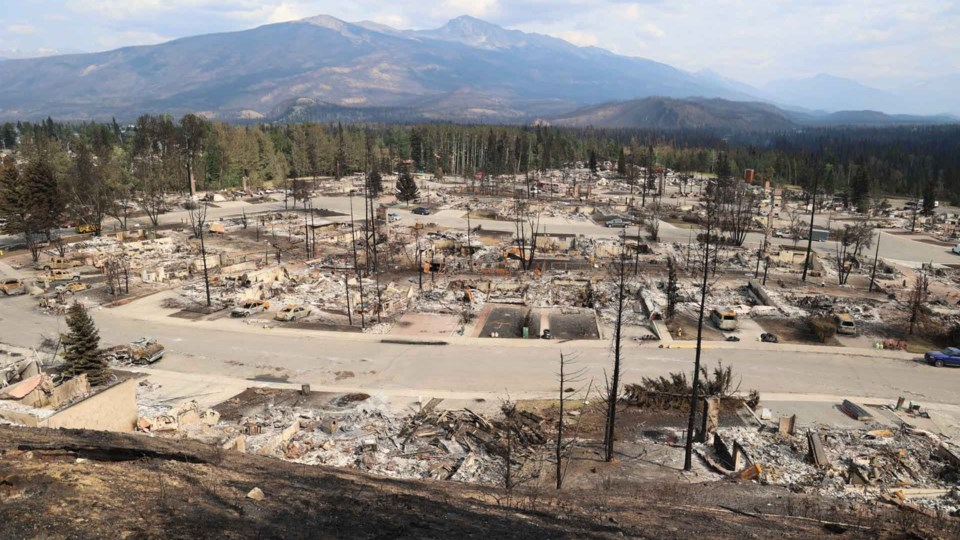JASPER – More than half of Jasper households say they are experiencing financial difficulty following last year’s wildfire, according to a recent survey.
On Tuesday (June 24), municipal council was presented with the results of the Jasper Wildfire Recovery Needs Assessment Survey. It is expected to direct administration to incorporate the findings in future work planning at its next meeting on July 8.
According to the survey, 52 per cent of households reported financial difficulty, with higher rates among displaced residents (63 per cent), renters (69 per cent) and uninsured households whose homes were damaged or destroyed (82 per cent).
“We found that variation in post-wildfire experience across demographic groups highlights the importance and the value of targeted and case-managed supports,” said Doug Olthof, housing and social recovery manager.
The Jasper Recovery and Coordination Centre circulated the survey earlier this year to 800 households, which were randomly selected from a list of 4,035 that registered with the Canadian Red Cross during the evacuation. The survey received 365 responses, which administration noted was an “excellent” response rate of 45.6 per cent.
With respect to insurance, 56 per cent of respondents with damaged or destroyed homes were insured, but 67 per cent of those with insurance indicated it will not cover their losses or were unsure that it would.
“The lack or inadequacy of insurance coverage was correlated strongly with having financial difficulties,” Olthof said.
Among the households facing financial struggle, 66 per cent struggled with housing, 59 per cent with food and 41 per cent with clothing.
Although few respondents reported unmet needs with serious health issues, 28 per cent reported unmet needs regarding stress and mental health challenges.
“Widespread mental health challenges were indicated and suggest the need for varied and diverse mental health supports ranging from conventional clinical supports to socially embedded peer supports,” Olthof said.
Because 42 per cent of respondents were still displaced from their homes six months post-fire, Olthof emphasized the importance of interim housing and ongoing outreach to Jasperites still residing outside the community.
The most frequently accessed supports were income (32 per cent), food (28 per cent), housing (20 per cent) and clothing (18 per cent). Sixteen per cent of respondents say they faced barriers such as ineligibility, lack of information and service gaps when trying to access supports.
The survey also revealed sharp declines in participation for recreation, arts and volunteering, particularly among newcomers and members of groups at risk of exclusion.
Transportation challenges were markedly higher among displaced residents, indicating the value of regional transit solutions such as the new regional transit system between Hinton and Jasper.
Olthof noted that the survey provided a baseline assessment of recovery needs six months after the wildfire, and discussions about a follow-up survey were ongoing, but it would occur either in the fall or one year after the first survey.
Coun. Helen Kelleher-Empey said she was interested in the results of the next survey now that Jasper had interim housing and would soon have a regional transit service. She added how the recreation facilities being closed until December and groups needing time to restart likely impacted recreation participation rates.
Coun. Kathleen Waxer said while there would probably be an uptick in participation for recreational and community activities in the next survey, the connection with mental health could not be ignored.




